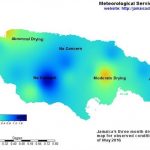
Much of the Sub-Saharan Africa suffers from poor soil, poor crops, poor water quality and poor livestock health. These all contribute to poor human health and stagnant economic development. There have been very few changes in farming practices over the last 30 years in the region largely because farmers are trapped in poverty. This is leading to increasing food insecurity, water scarcity and environmental degradation. What can be done to change this situation? The answer lies in the soil itself.

Open up an academic journal, audit any course that has some social science aspect to it. You can even sit in on a corporate meeting and likely hear the term “stakeholder engagement.” In fact, you’d probably think it had become second nature to everyone in the room. But don’t let the ease at which the term is used deceive you. Stakeholder engagement is not an easy task.

This year’s Climate and Society class is out in the field (or lab or office) completing a summer internship or thesis. They’ll be documenting their experiences one blog post at a time. Read on to see what they’re up to. By Tiff van Huysen, C+S ’16 The woman in the photograph below is nameless. Not… read more

When most people think of a weather forecast, they usually think of a forecast 1-10 days in advance. While these forecasts are the most familiar, they are only one end of a spectrum. On the other end are forecasts that range up to months in advance. Farmers in the developing world are increasingly using these types of forecasts to make decisions that directly impact their livelihoods.







